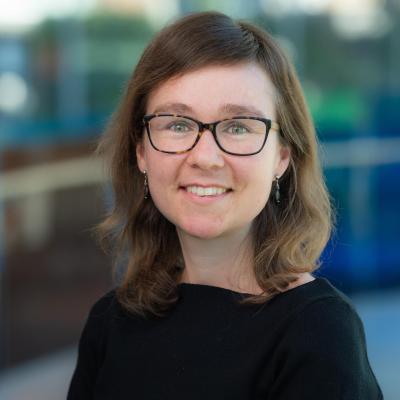2022 Killam Postdoctoral Fellow Research Prize recipient, Femke Hoekstra's research focuses on understanding and improving knowledge translation processes, especially in the area of rehabilitation and physical activity promotion.

Research topic
Research Description
My research focuses on understanding and improving knowledge translation processes, especially in the area of rehabilitation and physical activity promotion. I have a particular interest and expertise in health behavioral change research related to people with spinal cord injury and other physical disabilities. My research involves studying implementation processes of behavior interventions and trials in real-world settings from different perspectives (organization, professional, and client/patient). My goal is to improve physical activity levels in persons with disabilities through the development, evaluation and implementation of behavioral interventions and trials in real-world settings using an integrated knowledge translation (IKT) approach.
Two examples of projects that I have been involved in during my postdoctoral training are:
- Translation of the scientific spinal cord injury (SCI) scientific exercise guidelines to community SCI physical activity guidelines. Using a rigorous, 10-step knowledge translation approach, we created an online resource that supported the implementation of the guidelines. The resource is available via www.sciguidelines.com.
- Co-development of the IKT Guiding Principles for conducting and disseminating SCI research in partnership. These principles aim to guide meaningful engagement of research users (e.g. community organizations, people with SCI, clinicians) throughout the research process. A supporting resource is available via www.IKTprinciples.com.
Why did you decide to pursue a postdoctoral fellowship at UBC? Did you consider other opportunities?
I decided to pursue a postdoctoral fellowship at UBC Okanagan’s School of Health and Exercise Sciences to work with, and learn from, global leaders in the field of health behaviour change and knowledge translation: Drs. Kathleen Martin Ginis and Heather Gainforth. During my doctoral training, I had the opportunity to work with Prof. Dr. Kathleen Martin Ginis during an eight-week visit in Canada. When I heard about the postdoctoral position in the labs of Drs. Martin Ginis and Gainforth, it didn’t take long for me and my husband to realize this was a great fit for the next step in my career. We always wanted to work abroad for a while. This opportunity came at the right time. Besides, Kelowna is beautiful and has so much to offer whole year round!
What specifically attracted you to your research group?
What specifically attracted me to join Drs. Martin Ginis and Gainforth’s research labs (SCI Action Canada Lab & Applied Behaviour Change) is their commitment to knowledge translation and their focus on community-engaged research. Both labs have strong partnerships with the local community, especially with the spinal cord injury community. I knew I could learn a lot from my supervisors in terms of how to build and sustain these kinds of unique relationships and how to meaningfully engage your research users in the research process.
What advice do you have for new postdoctoral fellows?
The first piece of advice I would give to new postdoctoral fellows is to make sure to enjoy this unique time in your career. It’s the time to fully focus on your own research and professional development and expand your network. I highly recommend investing in establishing new connections and partnerships, within and outside UBC. Working with people with different experiences and expertise will provide new learning opportunities. Another piece of advice would be to be aware of the many training and professional development opportunities that are offered within and outside UBC. Engaging in various training or professional development activities will help to prepare you for the next step in your career!
What do you like to do for fun?
I enjoy running/hiking, cross-country skiing, playing tennis and golf, and playing the piano. I also like travelling and learn more about other cultures and countries.
What is the most enjoyable aspect of your postdoctoral fellowship?
The most enjoyable aspects of my postdoctoral fellowship are:
- Working with, and learning from, different researchers and research users (e.g. people with lived experiences, representatives of community organizations, health professionals)
- Mentoring students in different programs and settings
What does receiving this award mean for your career?
I feel truly honored and grateful to be awarded with the Killam Postdoctoral Fellow Research Prize. It means that the research I do for and with the community is being recognized and valued. I hope this award will help me to the next step in my career as an implementation scientist.